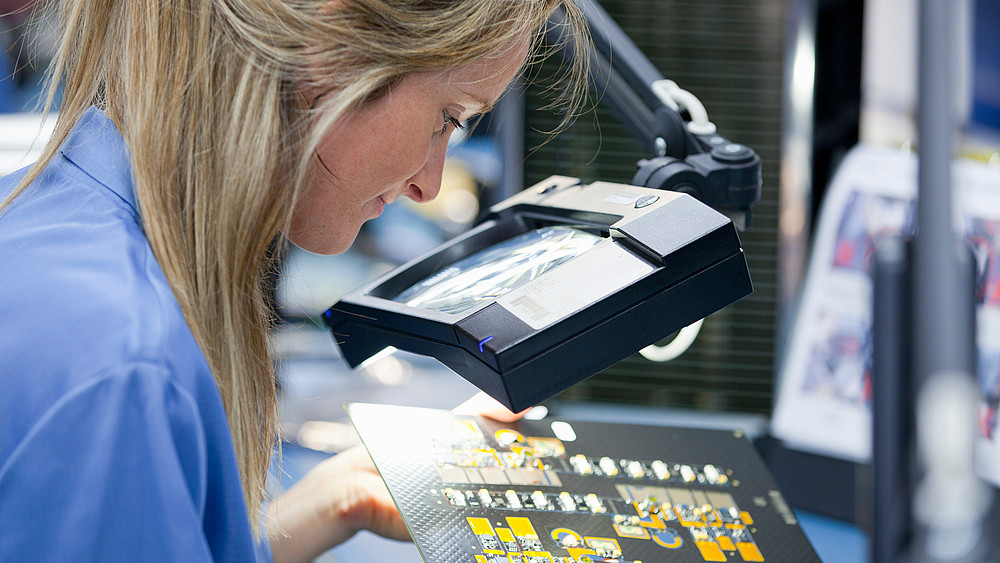The Neisse-Elektro took place on April 2. Laura Engemaier describes her experiences as a participant last year in an interview.

On April 2, students from Poland, the Czech Republic and Germany took part in a challenging competition at this year's long-distance electrical engineering Olympics - Neisse-Elektro 2022.
Laura Engemaier took part very successfully in the Neisse-Elektro last year. In this interview, she talks about tricky circuits, unforgettable moments and why you should sometimes listen to your gut feeling.
Laura, you were the best participant from Germany at the last Neisse-Elektro-Olympiade and came second overall. Congratulations! Can you remember how you felt when the results were announced?
When I found out the result, I was on my way to pick up a friend from the bus. I wasn't feeling so good as I had just had a coronavirus infection, which meant I had missed my written A-level exams. So the announcement was a big ray of hope and pretty much saved my week. My girlfriend was really happy for me. I think I'll remember that for a long time.
How did you prepare for the Neisse-Elektro?
Together with the other participants from Christian-Weise-Gymnasium, I took part in additional preparation lessons with our physics teacher and, together with a classmate, we worked through the previous Olympiads.
What kind of tasks did you have to solve? How easy or difficult was it for you to come up with the solutions?
It's been a while since I did the tasks. I remember that the first one was a circuit system where you had to calculate the voltage, current and resistance of the individual branches and I skipped that first. In the end, I just drew the circuit diagram and started calculating something in the hope of getting a few more points. The second task went much better and the third was about a certain electromagnet that I had never heard of. But apparently I had guessed correctly how to solve the problem. The tasks were a challenge, but with preparation you could recognize a few parallels and find the solution. In any case, it helps not to get hung up on tasks and to trust your gut feeling (that comes from somewhere) if you're not 100% sure.
The event had to take place online due to the pandemic. How did you find the organization and implementation of Neisse-Elektro?
I thought the organization was great and, in retrospect, I think the decision to hold it online was a very good one, as I had already fallen ill during the event and wouldn't have been able to take part otherwise. Even though the stories from the live event made me a little envious of what we missed, I am very grateful for the opportunity.
What do you envision for your future?
For my future, I hope to find a balance between my hobbies (at this point, I'd like to say hello to my second family in the Applaudino circus) and science, and of course I hope to be able to do research with the really big names one day.
The Neisse-Elektro is an electrical engineering Olympiad that has been held with pupils from the three-country region since 1994. This year it took place for the 28th time.
Twenty pupils each from Poland, the Czech Republic and Germany were invited to take part in the STEM competition online on April 2, 2022.
The interview was conducted by Cornelia Rothe.